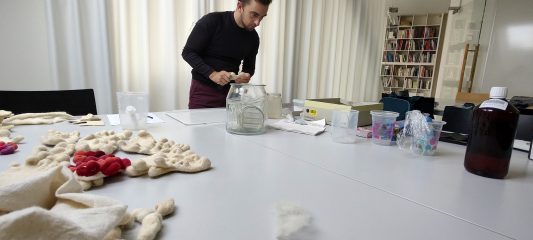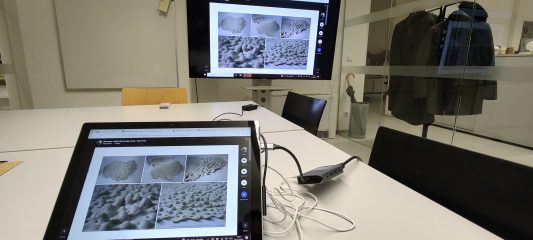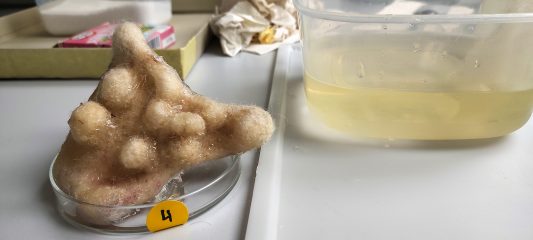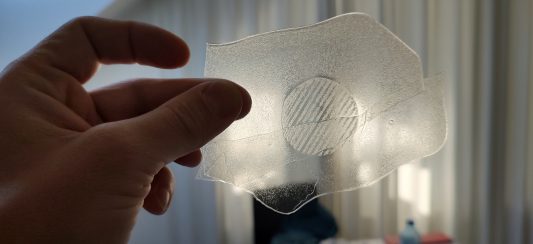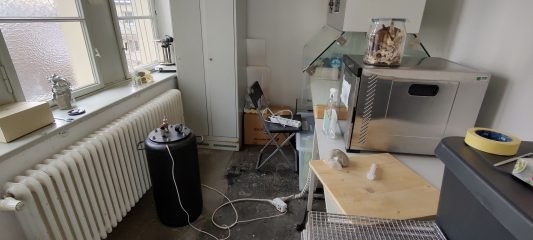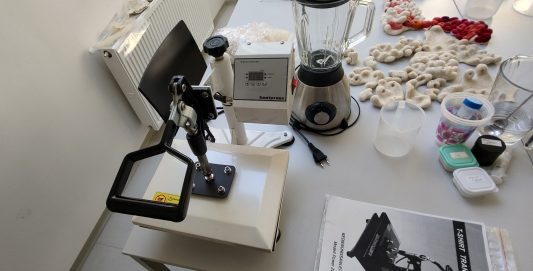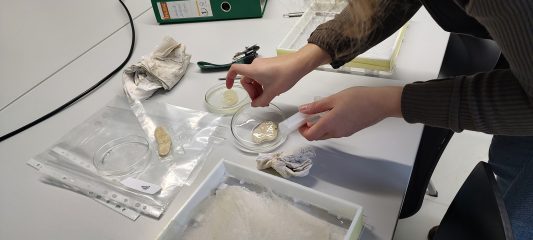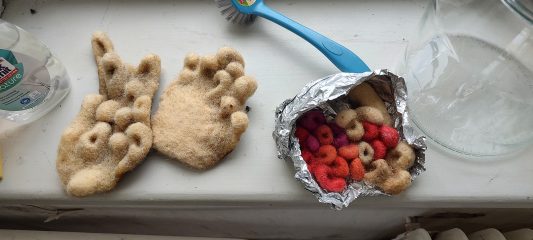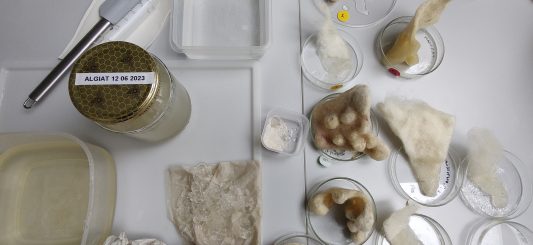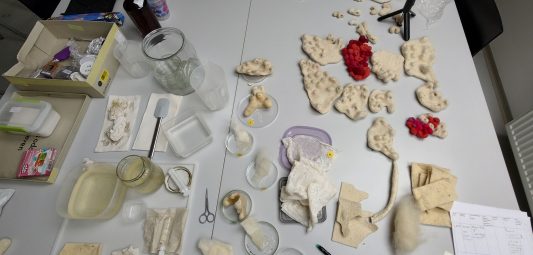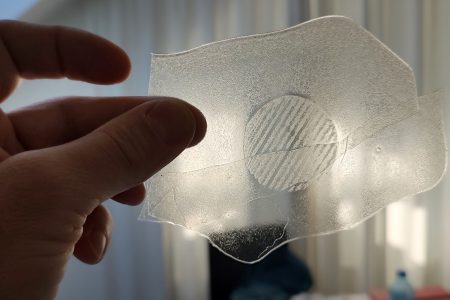
MY TRAINING MOBILITY IN GRAZ: Arpad Pulai
Arpad Pulai
University of Arts in Belgrade, Faculty of Applied Arts
Erasmus+ Mobility for Training at:
Graz University of Technology, Department of Architecture and Media
- 12. 2023.
As part of the Erasmus + project, I got a unique opportunity to attend training at the Graz University of Technology, Department of Architecture and Media. Upon arrival at the faculty, I was greeted by prof. Ph.D. Milena Stavrić, who was also my host. Immediately upon arrival, professor Stavrić started to show me the premises of the faculty and she directed me through all the existing workshops and the rules that will be helpful for my training sessions. She introduced me to all the possibilities of practical work in the field of resistance and protection of materials. She also pointed to potential problems that could occur during the experiments.
The training consisted of the preparation of an emulsion from extracted algae called Alginate. Alginate is widely used both in architecture and media, as well as for the purpose of resistance and protection of non-woven woolen materials. In order to approach the practical work, I had a short briefing on the resistance and protection of materials with Alginate, and the use and application of the substrate in different conditions. The training consisted of making several Alginate substrates that create different effects of resistance and protection on non-woven wool fibers. The training was reduced to the daily realization of several different effects on the structural surfaces of wool. The effects differed in touch, flexibility, some of those materials were matte or glossy, flexible or hard, waterproof or thermostable.
- 12. 2023.
On the second day of the training, I continued working on making different emulsions of Alginate substrate in combination with wool. My colleague Cornelia Ott, associate at the Department of Architecture and Media, helped me to make the substrate. Coincidentally, her current project, that she is working on, is dealing with the research of new materials with algae substrate and she was willing to share her knowledge and experience with me. The second part of the day was spent treating the wool with a thermal press.
The training lasted until 12:30, after which at 13:00 I had a one-hour presentation of my work to the colleagues at the Graz University of Technology, Department of Architecture and Media. I presented my artistic and research work and thus explained what I do. I also showed them what was the reason I specifically decided to come to their department for the training. After the lecture from 2:00 to 5:00 p.m., I continued with the training and treated the material on the thermal press.
- 12. 2023.
The practical part of the work started at 9:00 a.m. and was focused on thermal treatment of non-woven wool under pressure. The training consisted of treating different types of wool under pressure and a certain temperature. Effects after treatment were changes in wool density and color thermostability. The duration of the training was 3-4 hours. In the meantime, in cooperation with Cornelia Ott, at the Department of Architecture and Media, I prepared Alginate for the next part of the training, which was related to making materials from Alginate. We placed the prepared substrate in molds, i.e. in Petri dishes, after which we put the Alginate in a dryer in order to create a stable material for further work.
- 12. 2023.
The work plan for the fourth day was aimed at analyzing the materials made and making their classification in relation to their structure or texture. Subsequently, we worked to create new materials by means of subsequent finishing with wool.
- 12. 2023.
The last day of the training was set aside for summarizing impressions and drawing conclusions. Through a conversation with colleagues at the University of Technology in Graz, I came to the conclusion that this form of international cooperation is extremely important for the motivation and further development of professional staff, as well as the transfer of newly acquired experience to other students. The exchange of ideas and application of practical knowledge is extremely important for encouraging new methodological practices in teaching. It is extremely important for the development and encouragement of new ideas because only in this way can better results be obtained in teaching.
